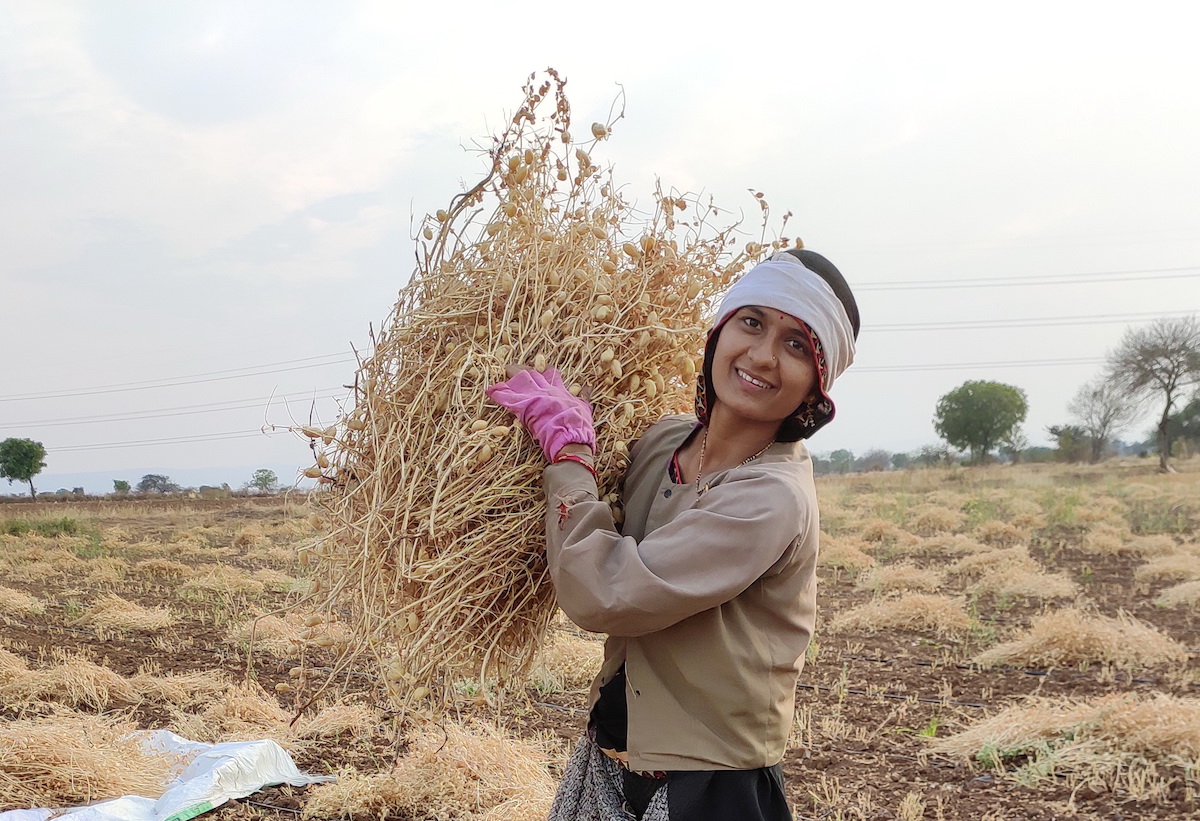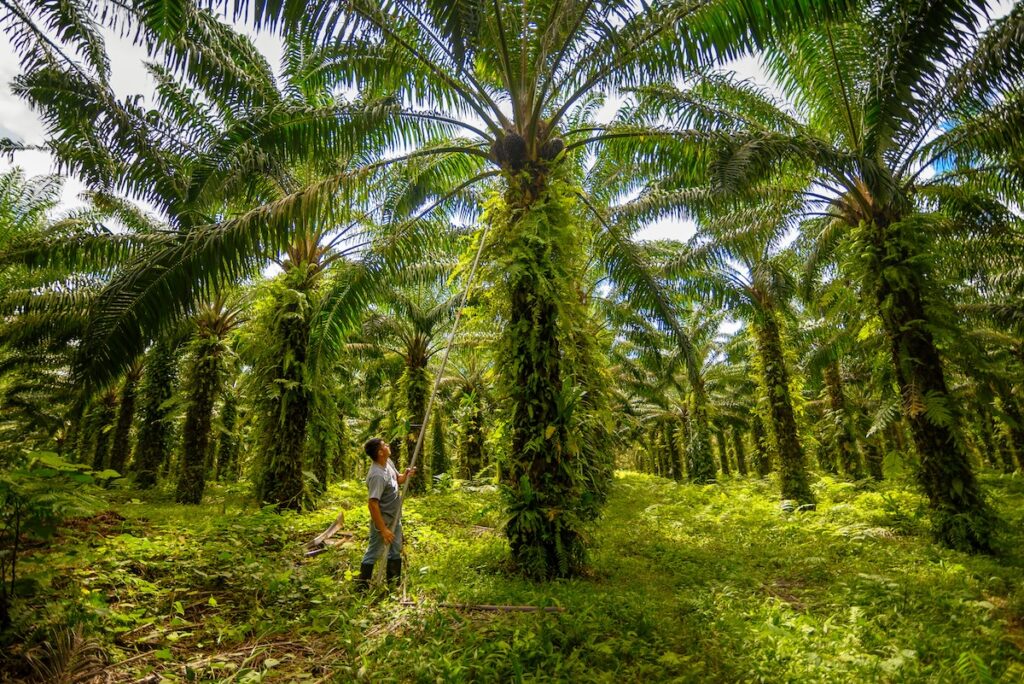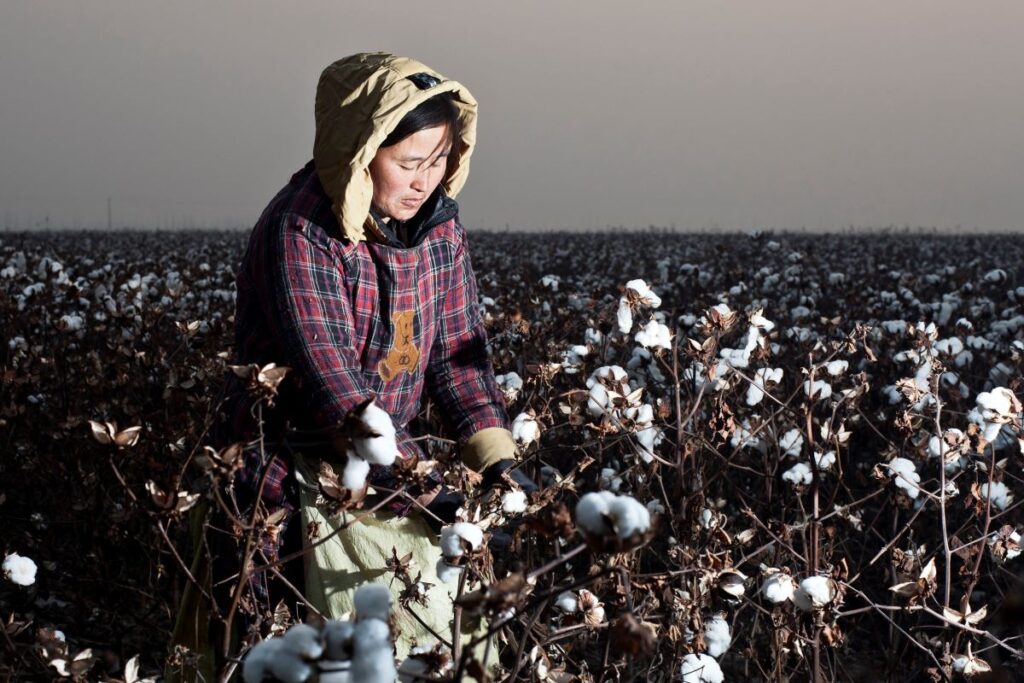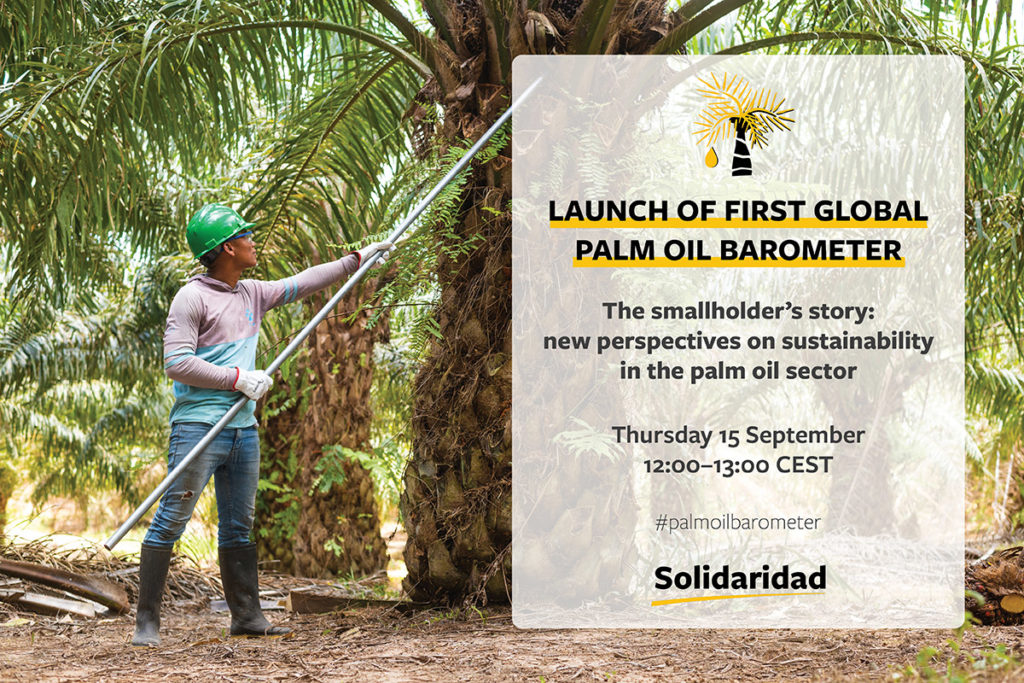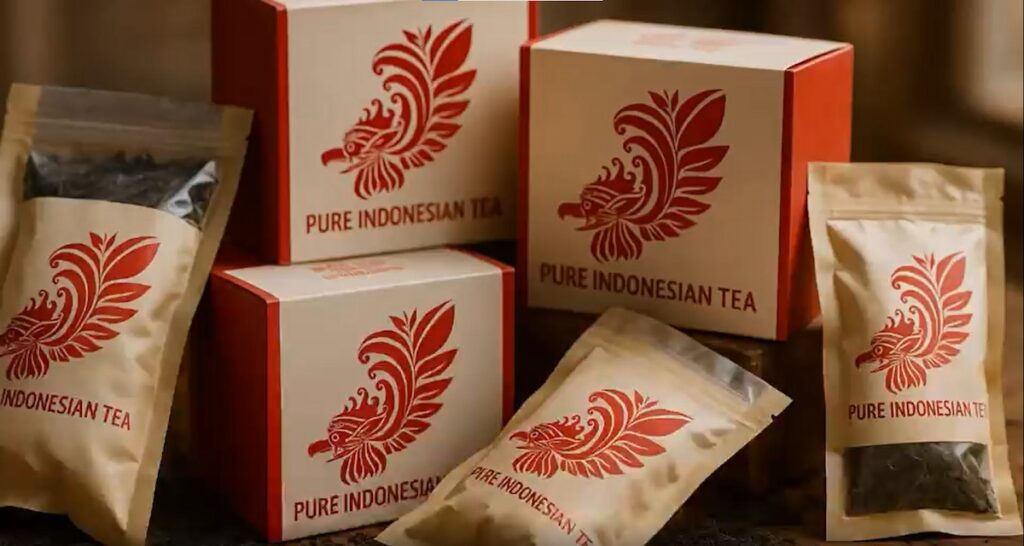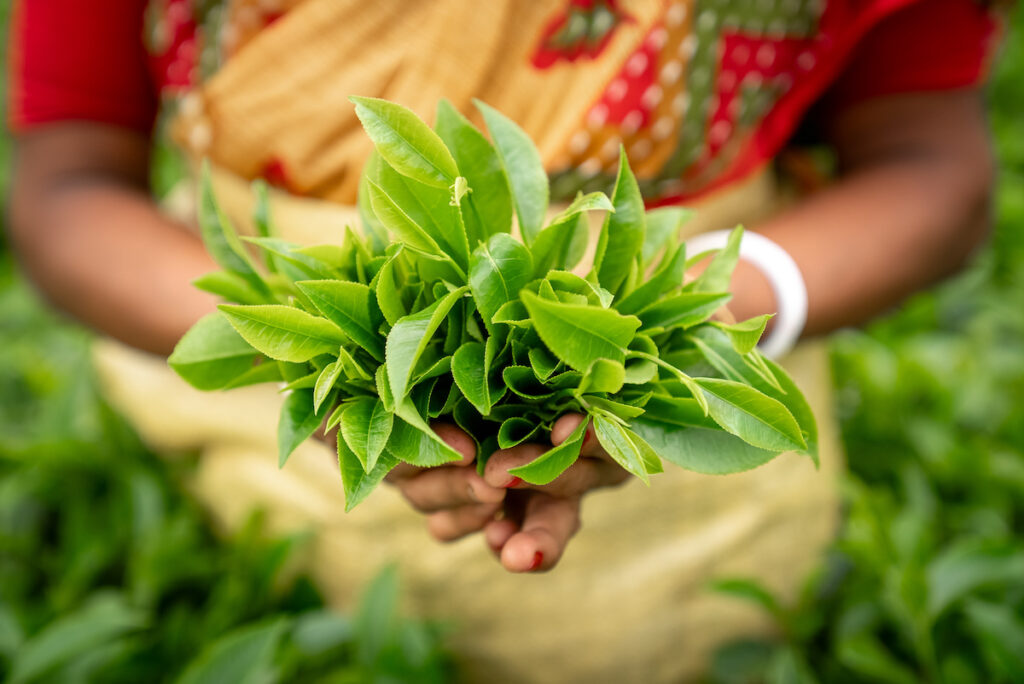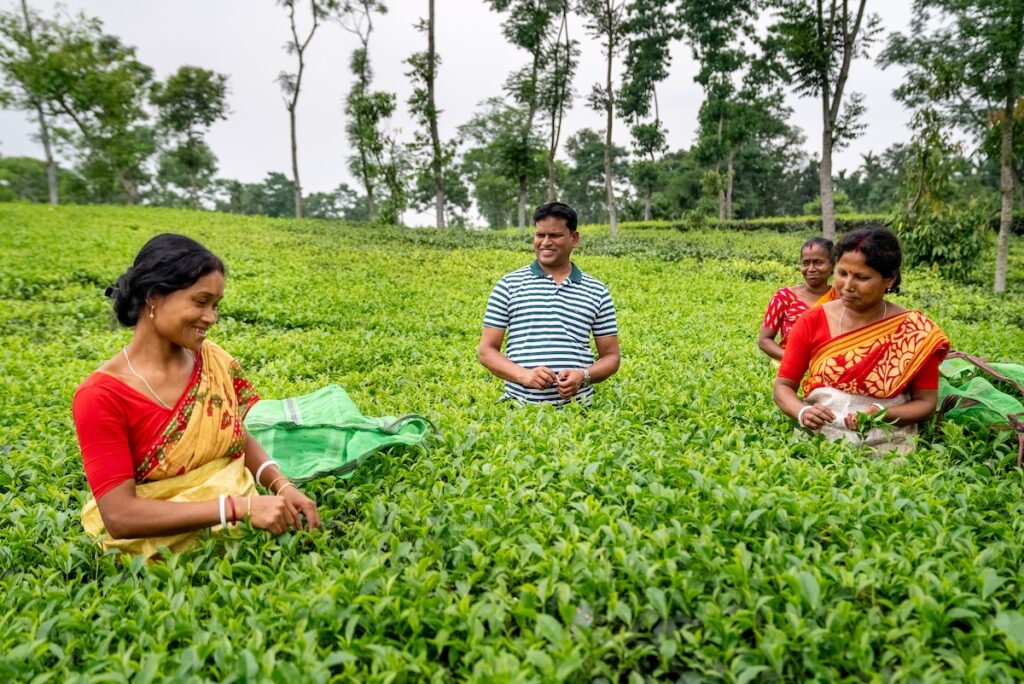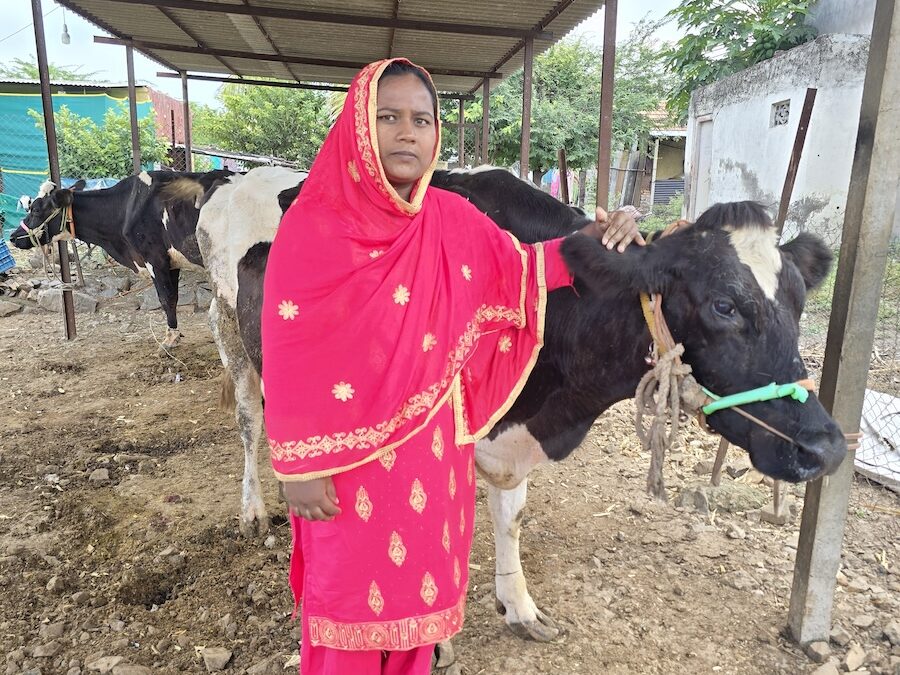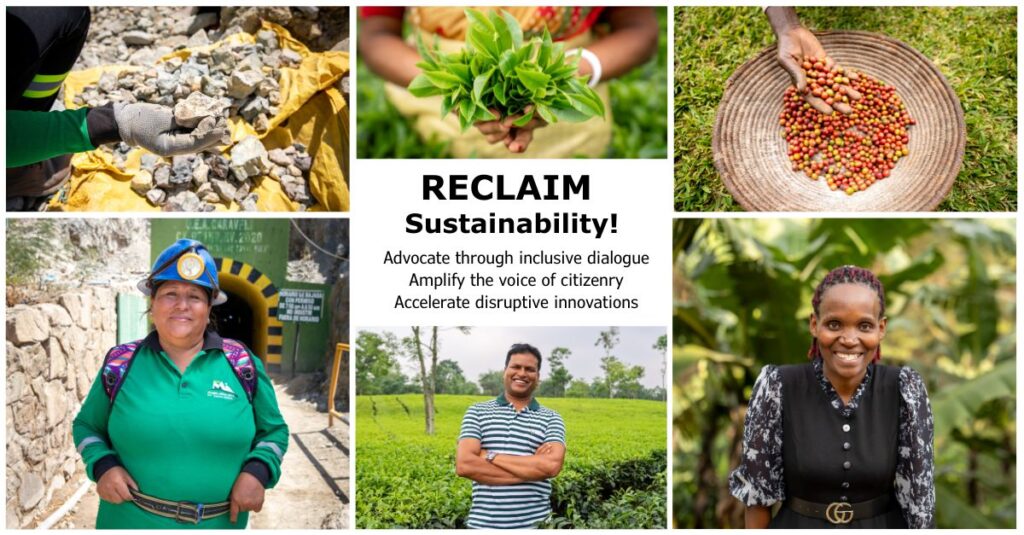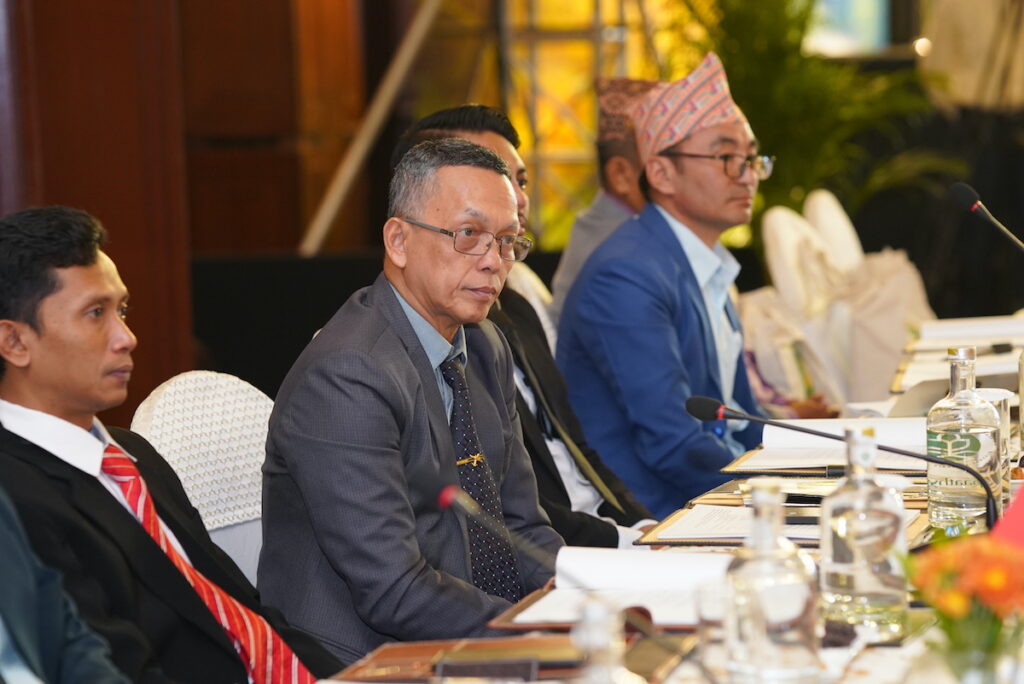Important first steps to connecting smallholder farmers to online markets
The pilot project in India, which is supporting smallholder farmers and small and medium enterprises (SMEs) to promote and sell more rewarding crops directly to potential buyers in India and Europe, represents a first and historical step towards onboarding of farmers to the digital economy. The aim is to develop new markets and create shorter and transparent supply chains that allow for more equal value sharing and better prices for farmers and SME suppliers. The pilot is part of the Solidaridad soy programme in the state of Madhya Pradesh in Central India, which supports farmers in smart diversification strategies, supporting them to change some low value crops for high value medicinal and aromatic plants. Already the strategy is proving to stabilize and raise farm income and increase employment opportunities for smallholder farmers, while conserving their natural resources.
New opportunities
Two important restraints faced by smallholder farmers are related to the lack of transparency in supply chains and the lack of access to rewarding markets. By onboarding them to the digital platform, both issues can be addressed at the same time. Presenting their products through an online store gives farmers a window to the world, while at the same time it allows them to get in direct contact with interested buyers. Selling through the 1-2-taste platform offers them the opportunity to sell to local markets and international markets at the same time, for now India and Europe. Even if actual volumes sold may initially be low, the onboarding process in itself forms an important first step in strengthening operations and creating visibility.
Onboarding of SME suppliers
While some Farmer Producer Organizations (FPOs) have the potential and the ambition to process raw materials and sell them directly to markets, others need to collaborate with existing companies that purchase the raw materials from them. Solidaridad works with micro, small and medium enterprise (MSME) suppliers that are committed to source sustainably cultivated plants and supports these where needed to onboard to the online platform. This process is quite demanding in terms of product quality and safety requirements, packaging, export documentation and logistics. Depending on the level of development of an MSME, this process can take 3 months to several years. Depending on the size and the ambition of a company, it can be more favourable to look for efficiency through collaboration with other MSMEs or service providers. In the case of the pilot, the 1-2-taste company in India is for now providing this service, while we prepare for next steps.
Shifting from negative to positive, regenerative product footprints
Consumers care more and more about the impact the products they buy have on the environment and on the people who produce them. Often brands buy from intermediary traders and have difficulties tracing back the ingredients to their origin. Selling directly through a platform makes it easier for product developers and brands to know where their products come from, how they are produced, by whom and in what way. Solidaridad can provide assurance on the origins and the social and environmental footprint of a product, which is to shift from a negative to a positive, regenerative footprint.
Traceability and assurance
For this purpose, Solidaridad is developing a digital traceability tool, named SoliTrace, which is to provide assurance and information on impact to buyers and consumers through storytelling and impact data generated through a monitoring system. The traceability tool for medicinal and aromatic plants will be developed from the experience with the TriniTea tool for tea.
The tool is based on hash chain technology, which is similar to blockchain. Consumers can find information on the origin of the product and on the way it is produced and handled by scanning the QR code, but also hear stories from farmers. It enables supply chain actors to monitor and secure the process, as SoliTrace captures data at every point of transaction, from producers at the farm gate to all intermediaries involved, including agents, factories and transporters. It has customized applications for different stakeholders that function independently but are interconnected and collaborate on integrating information. For instance, members and client companies have access to a dashboard that provides them with information on assurance, product, producer (farmer), geography from where the produce originates and impact, depending on their needs and interests.
SoliTrace is meant to serve as a digital mechanism that has the ability to technologically enable different assurance frameworks to prove their claims. However, easy integration with Solidaridad’s own assurance framework, of frameworks developed for the purpose, like Indian Sugar Smallholder Sustainability Framework (I3SF), already provide a good level of assurance. In future, impact data could also be made available to end consumers.
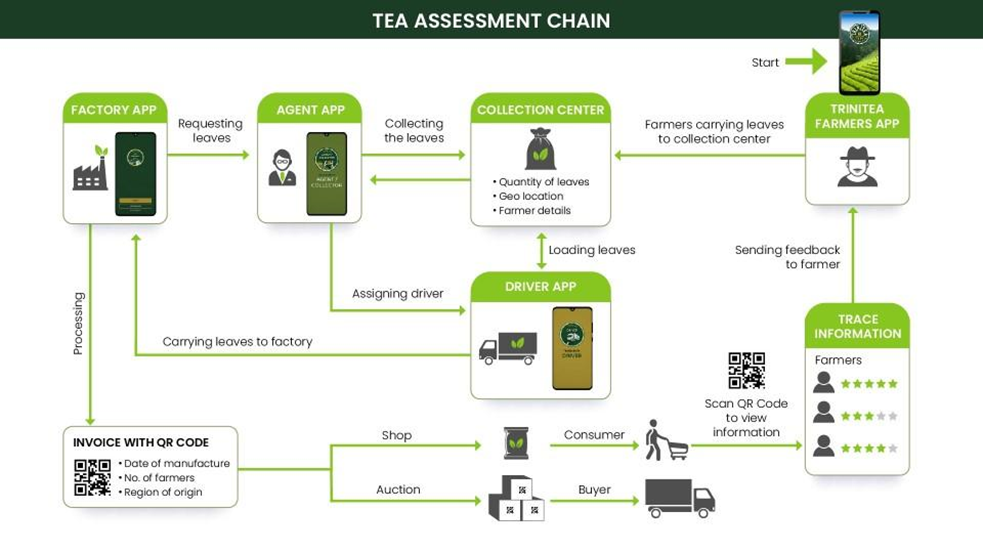
Design Lab for sustainability
To be able to take this process further, translate the lessons learned into next steps, develop the necessary tools and take the pilot to scale, a design lab is being created, together with natural ingredients marketing, compliance and assurance specialist ProFound, Advisors in Development. The design lab is meant to provide sustainability services to any supply chain actor interested in improving their sustainability performance. For brands this can mean assessing the current level of sustainability of ingredients used for a certain product and offering to improve the performance of existing suppliers or connect buyers to sustainable sources.
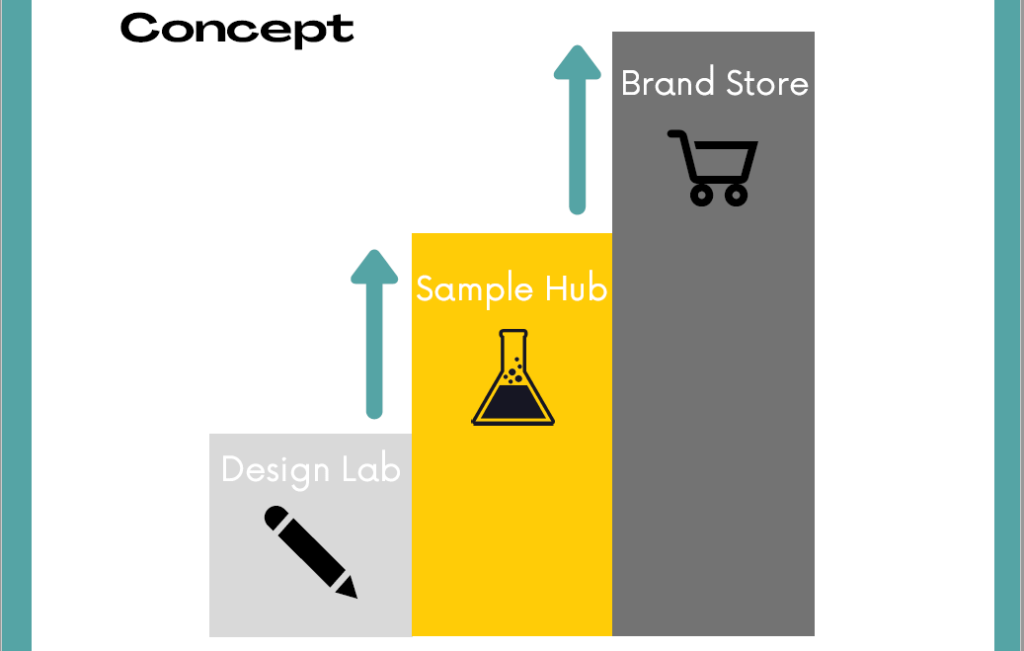
In the case of farmers and MSMEs that want to become suppliers of sustainable ingredients it is not only their level of sustainability that needs to be assessed, but also their market and export readiness. The outcome of such assessments is to provide insights in the gaps that separate them from becoming professional – on and offline – providers of good quality and sustainably and safely produced ingredients. From the classification process it will be possible to define the level and type of support needed to go through the different stages of onboarding.
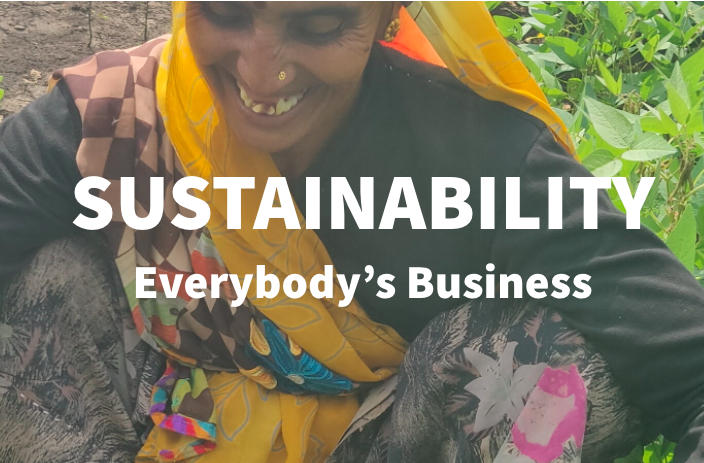
Explore the store
Take a look through the 1-2-taste B-to-B food innovation platform

